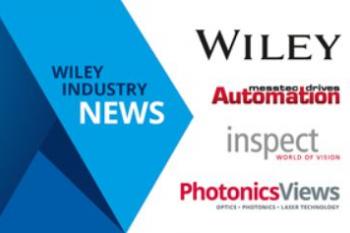The Right Dose
100% Testing of Medication Capsules
Pharmaceutical corporation Boehringer Ingelheim switches to one- hundred-percent testing of medication capsules with digital cameras from Allied Vision Technologies.
Hardly any industry is subject to as stringent quality criteria as the pharmaceutical industry - both for legal reasons as well as in its own best interests, owing to the potentially dramatic consequences of any error. As a result, in many cases, production must be inspected to exactly 100% in order to ensure that no defective preparations make their way to patients. How can, for example, 80,000 tiny capsules per hour be reliably tested without interrupting or halting the assembly process? This is a typical case for industrial imaging.
5.5 Milligrams of Micronized Powder
Boehringer Ingelheim, a pharmaceutical companies worldwide, faced just this challenge. At their main location in Ingelheim, Germany, the company produces, amongst other items, highly effective inhaled medications for respiratory disease. The active ingredient is loaded in micronized powder form into pharmaceutical hard gelatine capsules. Patients then load these capsules into specialized inhalation devices.
Each capsule contains only 5.5 mg of powder which is dispensed by filling machines into the capsules in the form of a weakly compacted cylinder. The precise and yet rapid dosing of such a small amount of powder is a masterstroke of Boehringer engineering. Nevertheless, there remains in this procedure, as in any industrial process, a residual risk that the amount deposited into individual capsules might deviate from the intended value. For Boehringer, such risk was unacceptable. To eliminate it, a 100% test system was required, but no capsule filling machinery manufacturer offered such a system. Thus, Boehringer decided to develop and implement an optical testing facility in-house under the direction of Dr. Peter Stöckel, a senior scientist at Boerhinger.
Self-developed Machine Vision Solution
This system was positioned in the assembly process after the filling and before the sealing of the capsules. After filling, the content of each still-open capsule is imaged from above. The filling machine's clock pulse triggers a digital camera and its dedicated LED flash unit, not via the PC but rather directly via the camera's external trigger input. The half-capsule is then illuminated from below using a high-intensity LED. Since the camera cannot be housed over the capsules that are traveling past, it captures their contents via a tilted mirror on the side. The camera in use is a Marlin F-046B from Allied Vision Technologies.
Via its FireWire connection (IEEE1394a), the AVT camera transmits the image data to an industrial PC. There, applications software analyzes the images. The software was internally programmed by Boehringer Ingelheim based on NI LabVIEW 7.1 by National Instruments.
After the capsule has been localized within the image, the imaging software first tests whether it contains powder at all. If so, then it analyzes the silhouette of the powder cylinder to derive the volumes and amounts of the active ingredient.
If a capsule is identified as defective, it is sorted out by a SPS-controlled air jet.
Capturing 22 Capsules per Second
The most important challenge for the testing mechanism is speed. "At an output of 80,000 capsules per hour, one capsule leaves the filling machine every 45 ms - put another way, the capsules move at a speed of 1.5 m/s", calculated Dr. Stöckel. For the camera, this means that 22 capsules per second must be captured. To avoid motion blurring, the exposure time cannot exceed 80 µs. According to Dr. Stöckel, the AVT Marlin camera meets these tough requirements fully and completely. "We're very satisfied with the Allied Vision Technologies camera. In continuous operation, it gives us sharp images that are indispensible for reliable evaluation", the Boehringer expert explained.
Meanwhile, the imaging system has successfully been installed on several machines in series production. "We are especially proud to have developed this innovative testing procedure in-house, in cooperation with Allied Vision Technologies and National Instruments", commented Dr. Peter Stöckel.
Contact
Allied Vision Technologies GmbH
Taschenweg 2A
07646 Stadtroda
Germany
+49 36428 / 677- 0
+49 36428 / 677- 28




